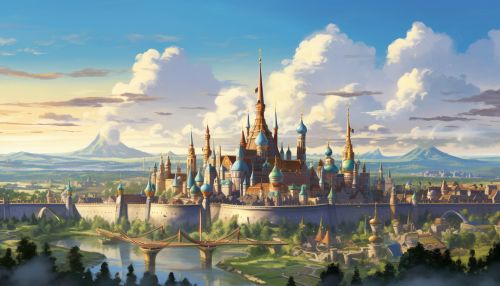History of the Russian Federation
Formation of the Russian Federation
The Russian Federation was officially established following the dissolution of the Soviet Union on December 25, 1991. The Soviet Union's demise came about due to a multitude of factors, including economic stagnation, political corruption, and the strain of maintaining a vast empire. The Russian Federation was recognized as the successor state of the Soviet Union on the international stage, inheriting its seat on the United Nations Security Council and a significant portion of its military assets.


Early Years (1991-1999)
The early years of the Russian Federation were marked by significant challenges, including a struggling economy, political instability, and social unrest. The first President of the Russian Federation, Boris Yeltsin, faced considerable difficulties in transforming Russia from a centrally planned economy to a market economy. This period was characterized by the privatization of state-owned assets, which led to the rise of a group of business oligarchs with significant influence over the Russian economy and politics.
Putin's Presidency (1999-present)
Vladimir Putin's presidency, which began in 1999, has been a period of significant change for the Russian Federation. Putin has sought to reestablish Russia as a global power, while also implementing policies to stabilize the economy and consolidate political power. His presidency has been marked by a return to state control in key sectors of the economy, a crackdown on political opposition, and an assertive foreign policy.
Economic Developments
The Russian Federation has experienced significant economic changes since its formation. The transition from a centrally planned economy to a market economy was a challenging process, marked by hyperinflation, economic contraction, and a significant increase in poverty. However, the Russian economy has also seen periods of growth, particularly during the commodities boom in the 2000s. Today, Russia's economy is heavily reliant on oil and gas exports, which make up a significant portion of the country's GDP.
Political System and Governance
The Russian Federation operates as a federal semi-presidential republic, with the President serving as the head of state and the Prime Minister serving as the head of government. The political system has evolved significantly since the formation of the Russian Federation, with changes to the constitution and electoral laws altering the balance of power between the branches of government. Critics argue that these changes have led to an erosion of democratic norms and increased centralization of power.
Foreign Relations
Since its formation, the Russian Federation has sought to maintain its status as a major player on the global stage. Russia's foreign policy has been characterized by a desire to protect its national interests, assert its influence in its near abroad, and challenge Western dominance in international affairs. This has led to a number of conflicts and tensions with other countries, including the ongoing dispute with Ukraine and strained relations with the United States and the European Union.
Society and Culture
Russian society and culture have also undergone significant changes since the formation of the Russian Federation. The transition from a communist society to a capitalist one has had profound effects on social norms and values. At the same time, traditional Russian culture, including literature, music, and art, continues to play an important role in society. The Russian Federation is also home to a diverse array of ethnic groups, each with their own unique cultures and traditions.
